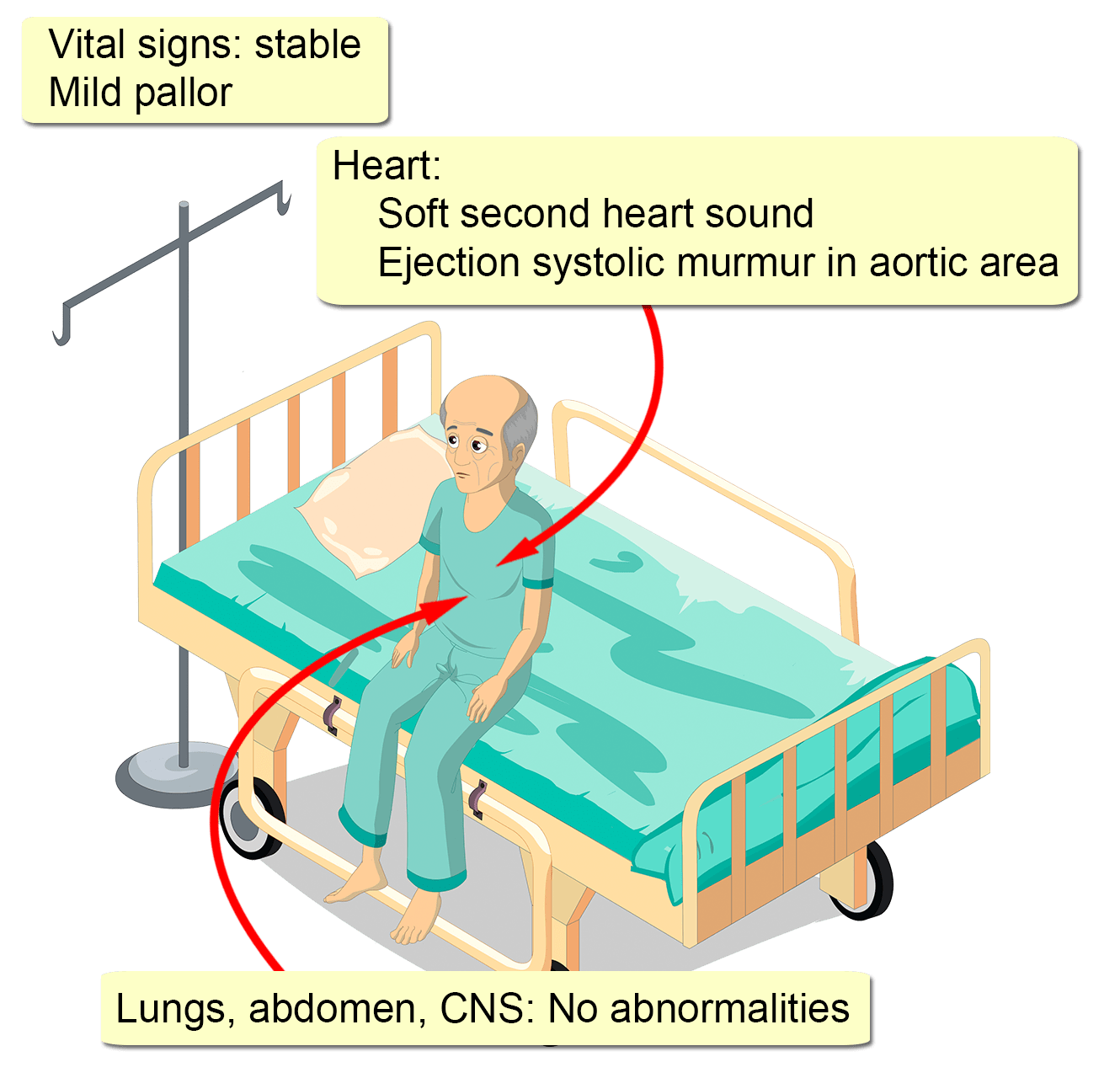With Time
1
View details
A 69-year-old man presents to the emergency department one hour after the passage of a moderate amount of bright red blood per rectum. There is no history of abdominal pain, tenesmus, or recent alteration of bowel habits. No other symptoms are present.
His medical history is significant for asymptomatic moderate degenerative calcific aortic stenosis, first diagnosed five years ago. He has been followed up regularly, with the most recent echocardiogram being three months ago. This confirmed the persistence of moderate aortic stenosis and showed no new findings.
He is not on any medications currently, including over-the-counter drugs or supplements. He is a former smoker, with a 20 pack-year history. He only drinks socially. He has never used recreational drugs.
On admission, his vital signs are stable. He is not in acute distress. A complete blood count is significant for a hemoglobin level of 10.0 g/dL (normal: 11-18), an MCV of 60 fL (normal: 80-100) and MCH of 18 pg/cell (27-31). Platelet counts are normal. His blood group is O positive.
He is subsequently admitted for further observation, but after 24 hours, no further bleeding has occurred. During further investigation, a blood film reveals microcytic hypochromic anemia with anisopoikilocytosis, while iron studies show results consistent with iron deficiency anemia.

